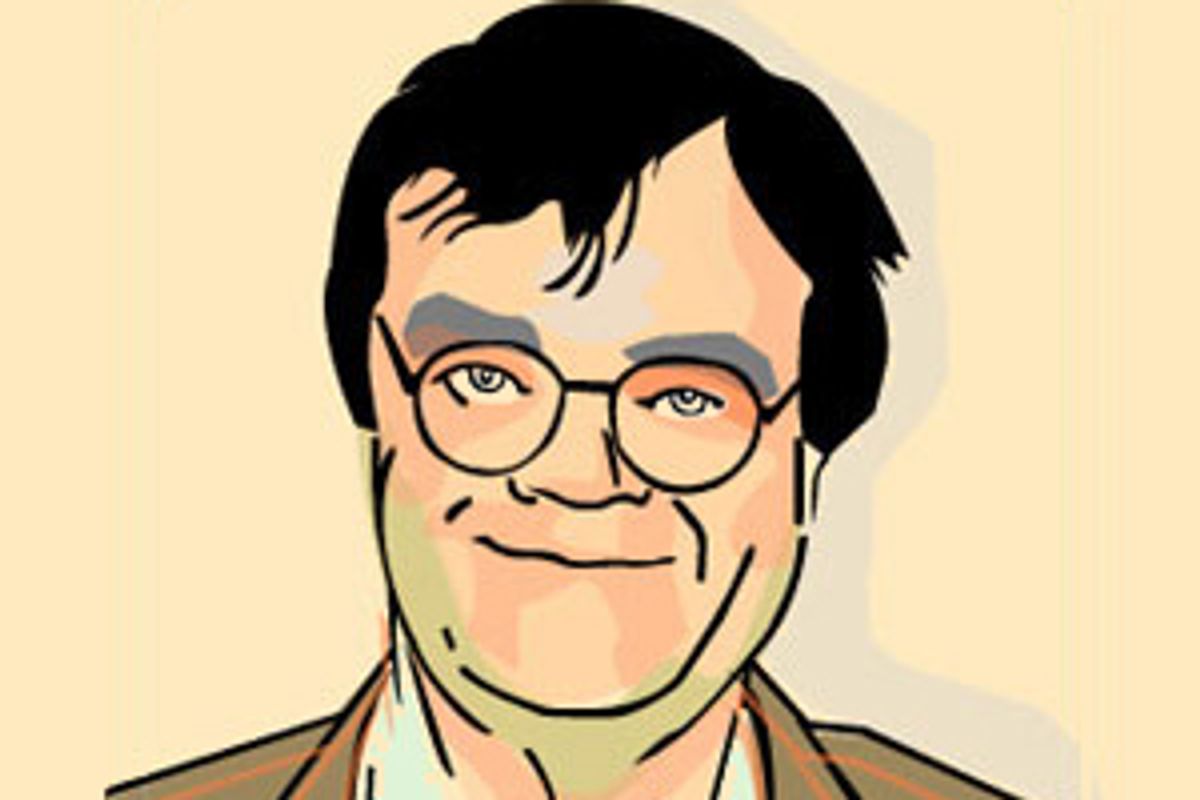One more reason to believe in God is the hope for the ultimate judgment when someday Someone will pronounce the final truth and we'll be done with all these small mean anecdotes that pass for history. Meanwhile, they constitute most of what we know about politics, stories told by men with a grudge. This is discouraging to the older person. This is all I will ever know about George W. Bush, a series of disparaging observations by people who've met him. Thanks to his own need for secrecy and comfort, nobody will be able to make an informed judgment of the man until you and I are dead and gone. One more reason young people pride themselves on being ill-informed: It don't matter because nobody else knows either.
The Nixon tapes were a lightning bolt of illumination, but historians are only starting to unearth the truth about events that dominated the news when I was a young man, and others, such as the assassination of John F. Kennedy, we've almost given up hope of ever understanding. To anyone who was old enough in 1963 to be affected by those gunshots in Dallas, it's truly dreadful, 40 years later, to still not know who was responsible. It is almost unbearable to think about this.
I would be happy to find out that I'm wrong about the president. It's exhilarating to discover the truth and to find out that you were off the mark. Alger Hiss probably was a Soviet agent and the fact that Richard Nixon was his accuser doesn't change that. There was a Soviet espionage network in our government and the fact that Joseph McCarthy was a drunk, a bully and a cynical opportunist doesn't change that. Along with a lot of other Democrats, I've wasted a lot of time on these issues that I was, in fact, wrong about. I'm glad to be set straight.
The obituaries for Gene McCarthy had little relevance to the man I knew and a lot to do with the accepted clichés of journalists. A man who runs for president against an incumbent of his own party is going to have the word "quixotic" glued to his rear end, and a man who doesn't have the arrogance of a rhino, who actually has a sense of humor about himself, is going to be "diffident." This is discouraging to the older person. You can work hard all your life and in the end they will get you wrong. It's merciful that you get to die before you have to chance to read what they say.
Long before McCarthy went to the Chicago convention in 1968, he knew that he had lost the nomination. This offended many of his supporters, who expected him to ride his white horse through the streets. But McCarthy wasn't that man. He was from small-town Minnesota. And he knew how to count votes. He once said, "One thing about a pig, he thinks he's warm if his nose is warm. I saw a bunch of pigs one time that had frozen together in a rosette, each one's nose tucked under the rump of the one in front. We have a lot of pigs in politics." He wasn't one of them.
I saw Gene McCarthy many times and he never struck me as diffident. I was, but he wasn't. He was a handsome Irishman with a gift for graceful speech, and he loved to stand up in front of an audience with his hands in his jacket pockets and rock back on his heels and orate. Even speaking impromptu, he was succinct and pointed and funny. He was always worth listening to and this cannot be said of so many people in politics, then or now. There is a constant supply of gasbags and stiffs and never quite enough men and women who can use the English language to good effect.
Gene McCarthy wrote a poem that begins with the names of women he knew as a boy -- "Mathilda Ophoven, Minnie Quast, Lucinda Nistler, Verena Brixius," who
Could cook potatoes
Eight ways at least
And believed any illness would yield
To eucalyptus tea, and brandy.
He may have been the last man in American public life to quote from Yeats or Frost and do it because he himself loved the poem and knew it by heart and not because a speechwriter had inserted it in the text. And he found poetry in the names of the old ladies of Watkins, Minn. May God's eternal light shine upon him.
- - - - - - - - - - - - - - - - -
Garrison Keillor's "A Prairie Home Companion" can be heard Saturday nights on public radio stations across the country.
(C) 2005 by Garrison Keillor. All rights reserved. Distributed by Tribune Media Services Inc.



Shares